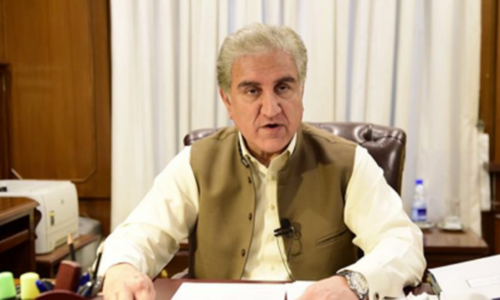Adding permanent members would enhance UNSC’s paralysis: Pakistan

UNITED NATIONS: Pakistan has warned the UN Security Council (UNSC) that adding new permanent members would “multiply the prospects of paralysis” in the council.
Pakistan’s UN Ambassador Munir Akram underlined Islamabad’s preferences for UNSC reforms at an informal meeting of the Inter-Governmental Negotiations (IGN) in New York on Monday.
The decades-long debate got a new impetus last week when Russia vetoed a US-backed resolution calling for an immediate withdrawal of its troops from Ukraine. Russia, Britain, China, France and the United States are the five permanent members of the Security Council with veto powers.
Pakistan is a core member of the Uniting for Consensus (UfC) group, which accepts the five permanent members but rejects further increases. Instead, it suggests increasing non-permanent members to 20. Created in July 2005, the group now has more than 120 states, with Italy as its coordinator.
“As witnessed only a few days ago, the veto profoundly affects the efficiency of the Security Council, with a paralysing effect on its decision-making abilities,” said Italy’s UN Ambassador Maurizio Massari in reference to the decision-making deadlock on the Ukrainian crisis in the council.
He said that while it would be ideal to abolish the veto, the UfC countries recognised that this was unlikely. “Therefore, the proposal is to adopt a gradual approach on the issue of veto and try to define the best ways to limit its use by the five countries that enjoy this power.”
Ambassador Akram said that principles and structures built to strengthen peace 75 years ago were “under extreme stress now” and the veto power prevented the Security Council and the General Assembly from “playing a critical and constructive role in restoring and maintaining international peace and stability”.
He also referred to various suggestions proposed for reforming the Security Council, which include normal two-year non-permanent seats; longer-term non-permanent seats; re-electable non-permanent seats; permanent seats for a region; permanent seats for individual states; permanent seats with a veto; permanent seats without a veto or a deferred veto and floating seats for one or more groups of states.
“We can also consider options for the representation of various regions in various configurations, as a means to accommodate the historical injustice against Africa, the Arab countries and the OIC member states,” he said.
The UfC, he said, would also explore compromise solutions with all the concerned groups on ways to secure realisation of their objectives.
Published in Dawn, March 9th, 2022














































